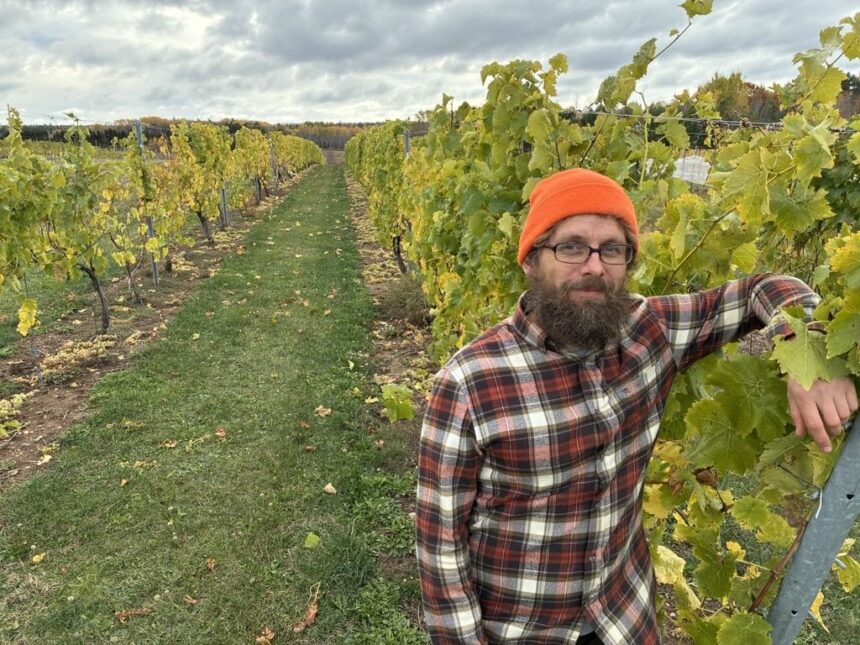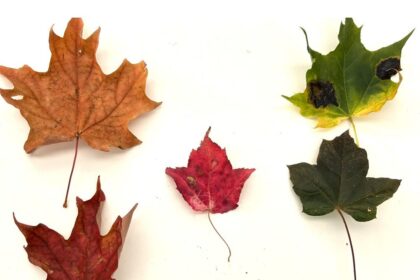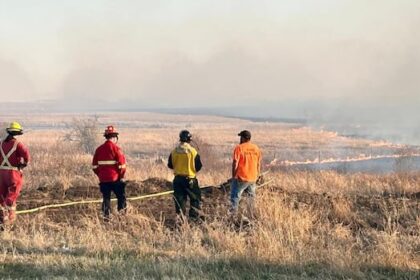Harrison Wright with the Agriculture and Agri-food Canada Research and Development Centre in Kentville is conducting several studies on hybrid grape varieties. While hybrids account for 70 per cent of vines in Nova Scotia, they are the subject of very little research, Photo by Ian Fairclough /The Chronicle HeraldArticle contentNova Scotia’s wine industry, like those of Ontario and Quebec, is based on hybrid grapes much more than other regions of North America.THIS CONTENT IS RESERVED FOR SUBSCRIBERS ONLY.Subscribe now to access this story and more:Unlimited access to the website and appExclusive access to premium content, newsletters and podcastsFull access to the e-Edition app, an electronic replica of the print edition that you can share, download and comment onEnjoy insights and behind-the-scenes analysis from our award-winning journalistsSupport local journalists and the next generation of journalistsSUBSCRIBE TO UNLOCK MORE ARTICLES.Subscribe or sign in to your account to continue your reading experience.Unlimited access to the website and appExclusive access to premium content, newsletters and podcastsFull access to the e-Edition app, an electronic replica of the print edition that you can share, download and comment onEnjoy insights and behind-the-scenes analysis from our award-winning journalistsSupport local journalists and the next generation of journalistsRegister to unlock more articles.Create an account or sign in to continue your reading experience.Access additional stories every monthShare your thoughts and join the conversation in our commenting communityGet email updates from your favourite authorsSign In or Create an AccountorArticle contentIt’s not by accident, as they are more disease-resistant and cold-hardy than vinifera varieties, which are based on traditional European vines. Hybrids cross the vinifera with a North American species.Article contentArticle contentWhile those hybrid varieties make up 50 to 90 per cent of the vines planted in the major wine grape growing regions in eastern Canada, they still account for only five per cent of global grape wine production, and as a result there has been less research involving them.Article contentArticle contentAbout 70 per cent of vines in Nova Scotia are hybrid.Article contentHarrison Wright at the Agriculture and Agri-food Canada Research and Development Centre in Kentville is hoping to do his part in changing that with his research to help growers understand and manage hybrid varieties in their vineyards.Article contentPart of his work comes in the wake of deep cold events in British Columbia and Nova Scotia in recent years that killed off some vinifera plants while wiping out that year’s crops but didn’t affect hybrid varieties nearly as badly.Article contentWright is collaborating with Cornell University to collect data and test a machine-learning model developed to calculate the hardiness of grape varieties, including several hybrids. The work is designed to make decisions for growers easier when looking at what varieties will fare best in their vineyards, depending on their climate.Article contentArticle content“It’s just based off temperature,” Wright said. “Temperature explains 90 per cent of how hardy the plants are going to be. . . . There are some other little factors like crop load and the timing of the first frost.”Article contentOther projects include grafting hybrid varieties onto different rootstocks to try to look at managing high potassium uptake into the vines that is more common in hybrids and could help with nutrient deficiencies, figuring out how to balance the leaf canopy with the crop load in vigorous vines, and the effects of some viruses on hybrids.Article contentWright said there are already results showing some increases in nutrient uptake by grafting onto existing rootstocks.Article content“The reason people didn’t do it before is because it’s easy to just take cuttings and if you think the roots are good, that’s good enough,” he said.Article content“It’s a cheaper vine and simpler to propagate, but I do find sometimes that hybrids will sometimes get into trouble with nutrients more often.”Article contentHe said there seems to be a climate disaster every other year lately, so the more research that can be done into hybrids, the better it is for everyone.Article content“Hybrids have a place in this world, and a maybe growing place,” Wright said.Article content“They’re pretty established here. . . . Maybe that’s where places in Canada and North America can be leaders. We know hybrids more than anyone else because we’ve been growing them and breeding them. . . . We know what they can do and can’t do.”Article content
More research into hybrid grape varieties in Kentville important for Nova Scotia industry











